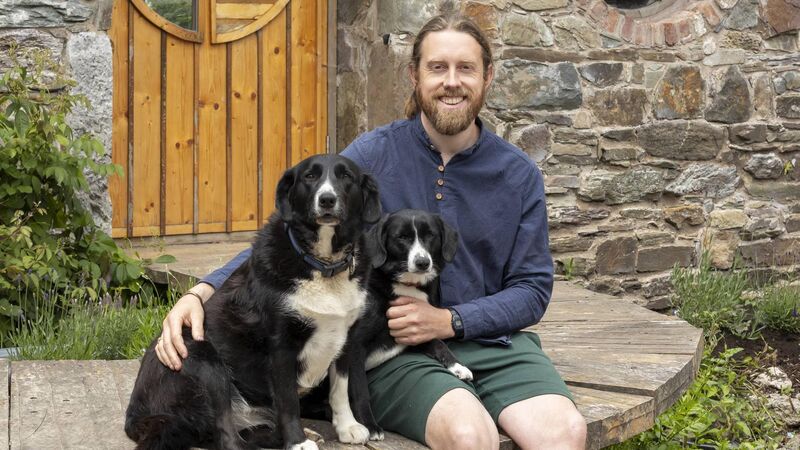Co Cork artists' residency: 'My father always spoke about our blood being sown into the field'

Richard Forrest with his dogs at the Redbarn Residency, near Youghal. Picture: Kate O'Brien
When artist Richard Forrest looked at a dilapidated cottage with a tree fallen through it on his family’s farm in Youghal, he saw potential where others might have seen ruins. After a period of working in Dublin and studying in the Netherlands, Forrest returned home to Cork in 2020 and began turning the cottage into an artist residency.
The dairy farm has been in the Forrest family for over 250 years. “My father always spoke about our blood being sown into the field, and that was always really emphasised, the importance of the land,” says Forrest.




